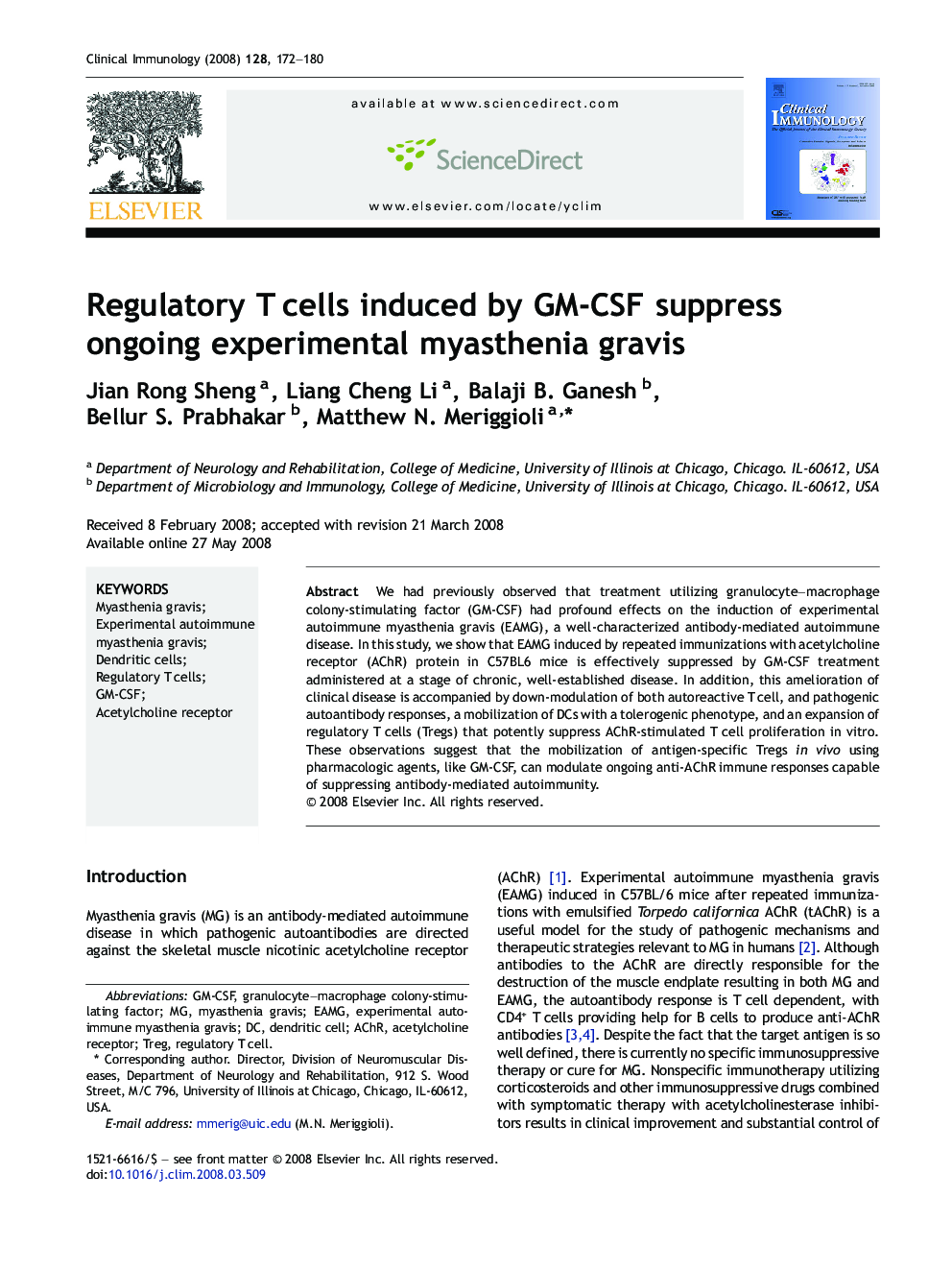| Article ID | Journal | Published Year | Pages | File Type |
|---|---|---|---|---|
| 3257970 | Clinical Immunology | 2008 | 9 Pages |
We had previously observed that treatment utilizing granulocyte–macrophage colony-stimulating factor (GM-CSF) had profound effects on the induction of experimental autoimmune myasthenia gravis (EAMG), a well-characterized antibody-mediated autoimmune disease. In this study, we show that EAMG induced by repeated immunizations with acetylcholine receptor (AChR) protein in C57BL6 mice is effectively suppressed by GM-CSF treatment administered at a stage of chronic, well-established disease. In addition, this amelioration of clinical disease is accompanied by down-modulation of both autoreactive T cell, and pathogenic autoantibody responses, a mobilization of DCs with a tolerogenic phenotype, and an expansion of regulatory T cells (Tregs) that potently suppress AChR-stimulated T cell proliferation in vitro. These observations suggest that the mobilization of antigen-specific Tregs in vivo using pharmacologic agents, like GM-CSF, can modulate ongoing anti-AChR immune responses capable of suppressing antibody-mediated autoimmunity.
